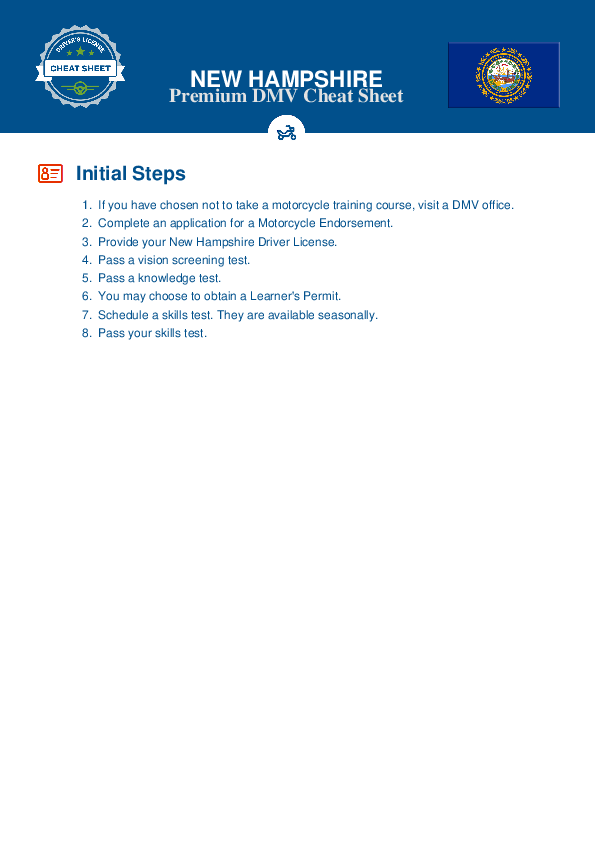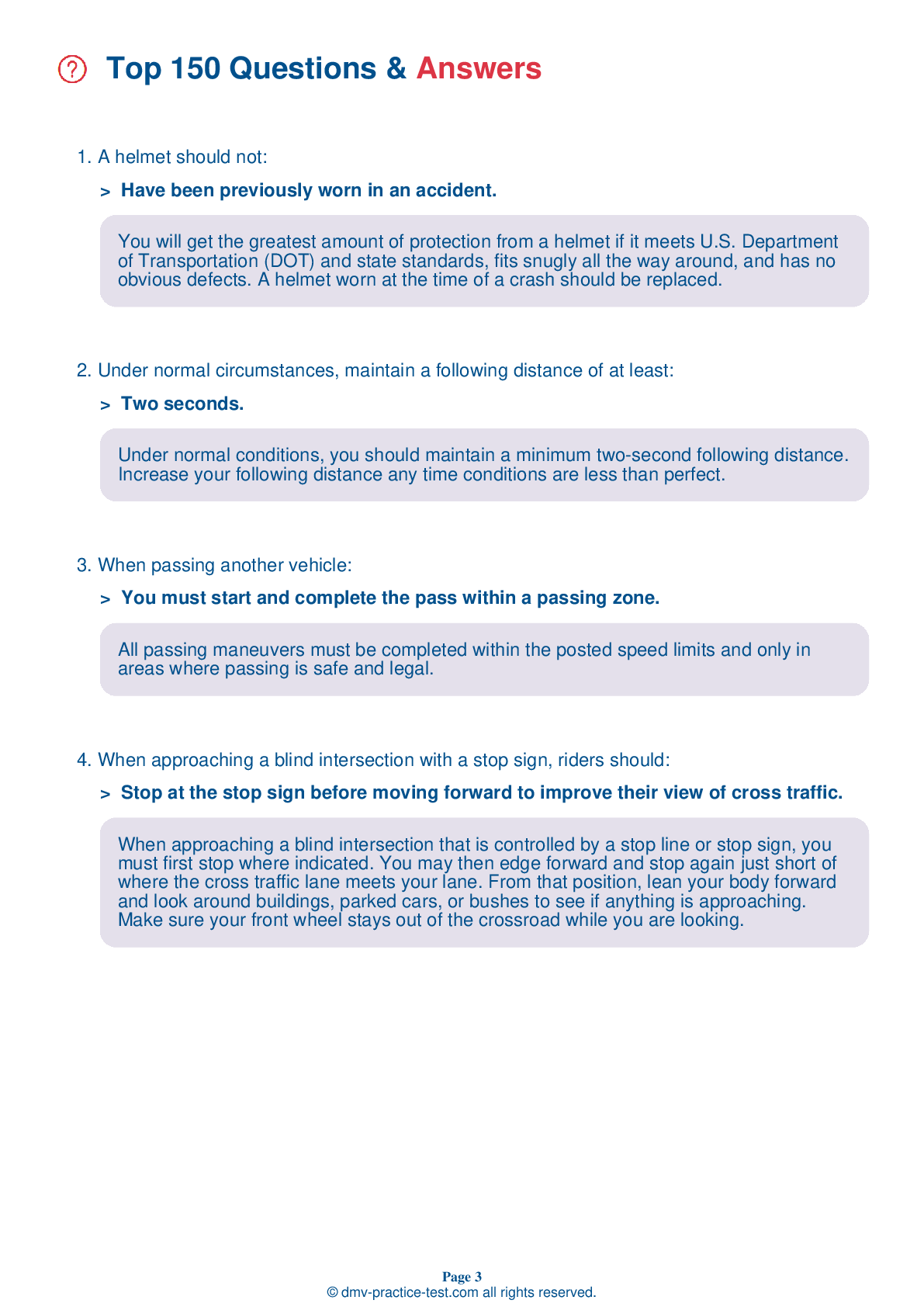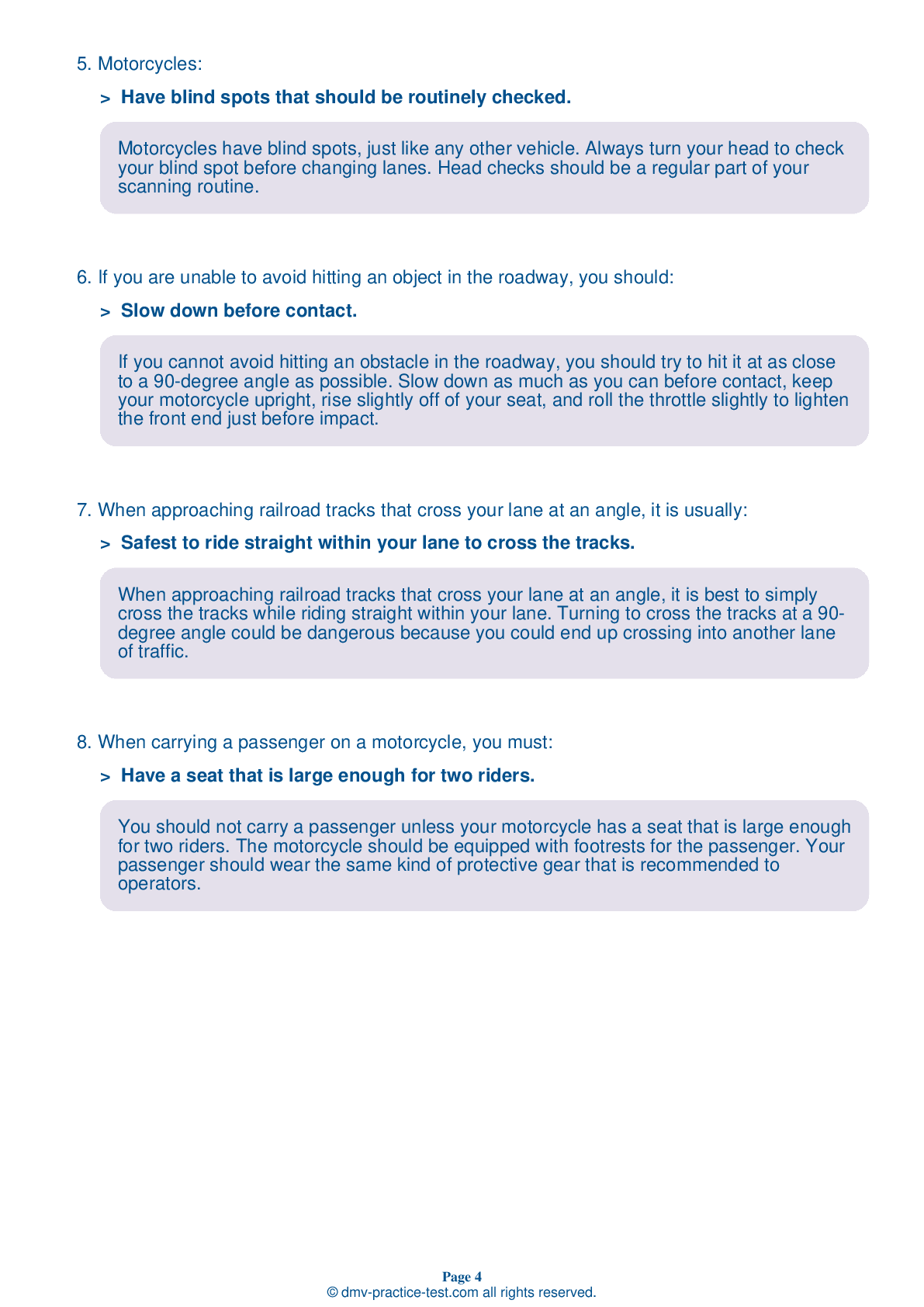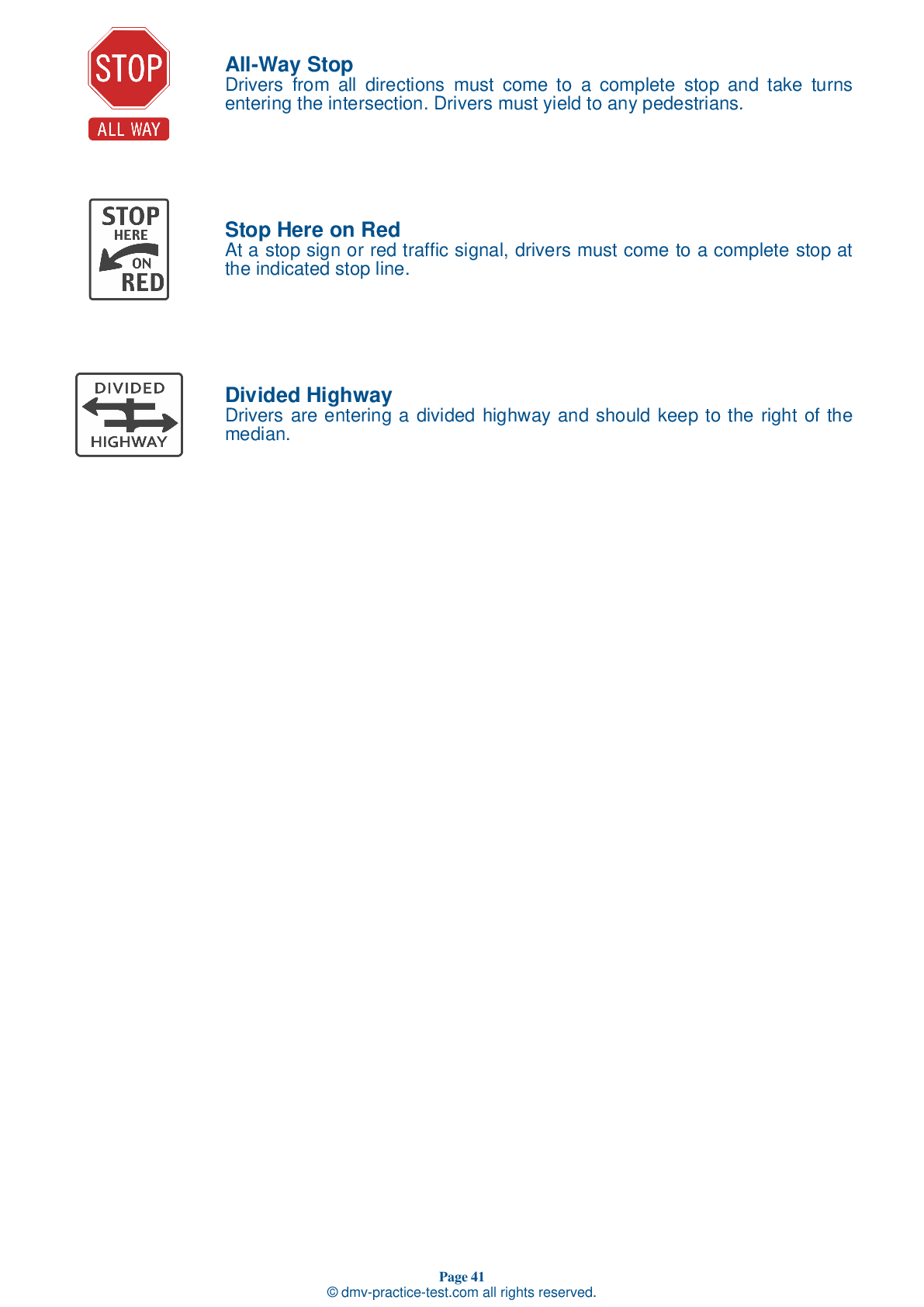Motorcycle Test | License NH 2026 | FREE Online Practice! #13 Page 2 of 4
Take this FREE motorcycle test (license in NH 2026) to check your knowledge of the road rules. To improve your results, download a motorcycle handbook online, study theory, and practice for free on our website. Still worried about how to get a motorcycle license in New Hampshire in 2026? Check our website for more sample tests, train as much as possible, and boost your grades!
7 . When preparing to pass another vehicle on the left, you should:
When passing another vehicle on the left, you should ride in the left portion of your lane. Signal your intentions and check for traffic. Pass when it is safe to do so, then signal and return to your original lane when traffic allows.
8 . When approaching railroad tracks that cross your lane at an angle, it is usually:
When approaching railroad tracks that cross your lane at an angle, it is best to simply cross the tracks while riding straight within your lane. Turning to cross the tracks at a 90-degree angle could be dangerous because you could end up crossing into another lane of traffic.
9 . Gloves can:
Gloves can provide you with an improved grip on your motorcycle's handlebars. They can also protect your hands in the event of a crash.
10 . This sign means:
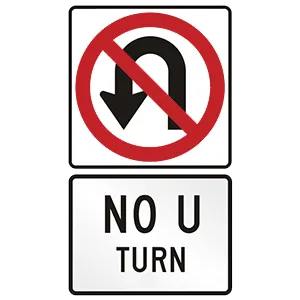
A regulatory sign displaying a red circle with a red slash through the middle indicates that a specific action is prohibited. U-turns are not permitted where this sign is posted.
11 . When your mirrors are properly adjusted, you should see:
Adjust your mirrors so you can see the lane behind you and as much as possible of the lane next to you. When properly adjusted, a mirror may show the edge of your arm or shoulder, but it’s the road behind you and to the side of you that is most important.
12 . Refusing to take a breath test when requested to do so by an officer:
By riding on New Hampshire roadways, you automatically consent to taking a chemical test when it is requested by an officer. Refusing a chemical test will result in license suspension.
See the exact questions that will be on the 2026 New Hampshire DMV exam.
99.2% of people who use the cheat sheet pass the FIRST TIME
Jeneen was tired of paying $5/gallon. She got herself a scooter that required the motorcycle license. She studyed the motorcycle test cheat sheet and passed her test the next day!
Christopher tells us how he knew nothing prior to obtaining the motorcycle study guide, and he only got one question wrong because he clicked on the wrong answer by mistake.
